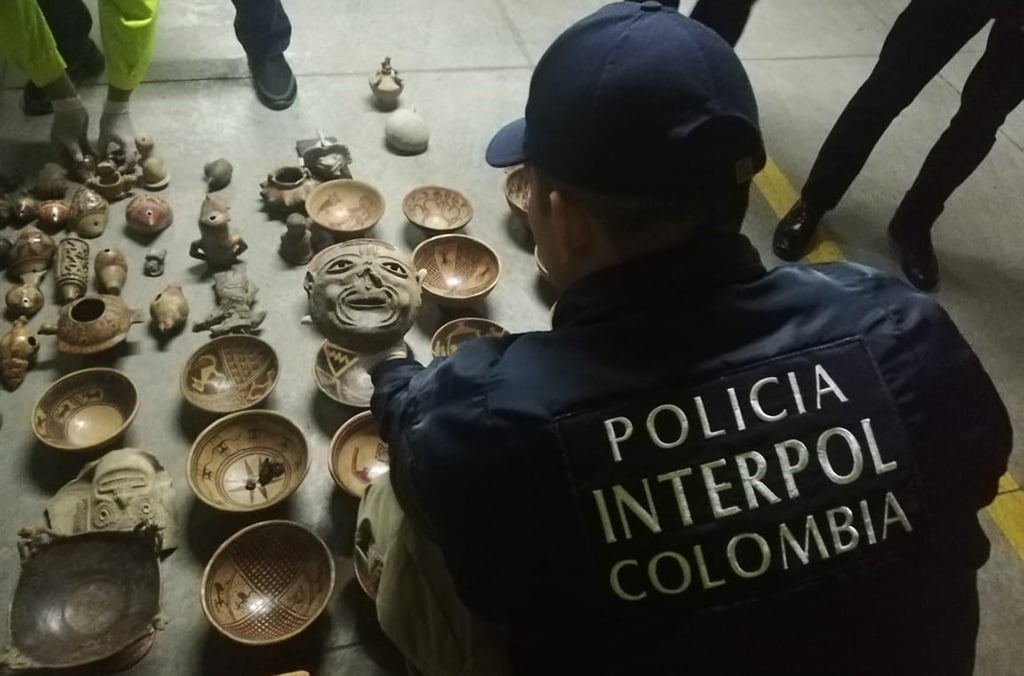
Some 19,000 stolen archaeological artifacts and artworks, including pre-Columbian gold relics and thousands of ancient coins, have been recovered in a global sting operation coordinated by Interpol and the World Customs Organization.
The operation, code-named ATHENA II, was carried out last fall in conjunction with PANDORA IV, a Europe-focused effort coordinated by Europol and the Spanish Civil Guard. Together, the two campaigns resulted in the arrest of 101 suspects and 300 new investigations opened across 103 countries.
The news was withheld from the public until this week, due to “operational reasons.”
“The number of arrests and objects show the scale and global reach of the illicit trade in cultural artifacts, where every country with a rich heritage is a potential target,” said INTERPOL secretary general Jürgen Stock in a statement.
Pre-Columbian gold relics recovered in Spain.
Investigators tracked more than 8,600, or 28 percent, of the recovered objects through black-market online sales—an increasing force in international trafficking rings. A single such sale led investigators to 2,500 ancient coins in Argentina and 1,375 coins in Latvia.
At Barajas airport in Madrid, the Spanish National Police and Colombian police recovered a trove of looted pre-Columbian artifacts, including a gold mask and several gold figurines. Authorities arrested three traffickers connected to the case and traced the relics back to a house in Bogotá, where they uncovered an additional 242 stolen objects. Another 971 cultural objects were intercepted at Kabul airport in Afghanistan.
Other objects recovered in the operation include paintings, fossils, ceramics, and weapons.
“Organized crime has many faces,” added Catherine de Bolle, Europol’s executive director. “The trafficking of cultural goods is one of them: It is not a glamorous business run by flamboyant gentlemen forgers, but by international criminal networks. You cannot look at it separately from combating trafficking in drugs and weapons: We know that the same groups are engaged, because it generates big money.”
“The hundreds of arrests and investigations launched—and thousands of objects seized—must be a wake up call for those in government and in the art world,” Deborah Lehr, founder of the nonprofit Antiquities Coalition, tells Artnet News. “This is a critical reminder, coming at an equally critical time, that when it comes to ancient art, buyers should beware. And any nation with a past worth protecting must also remain vigilant that its history is not stolen and sold to the highest bidder.”